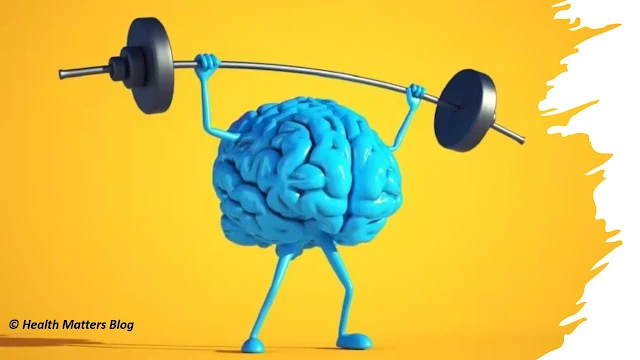Healthy Liifestyle (3): Excercise !
 |
| Regular Exercise benefits your body, brain, and psyche. |
Regular exercise has numerous benefits for both the mind and body. From improving cardiovascular health to reducing stress and anxiety, the positive effects of exercise are well-documented. Exercise can help to increase energy levels, improve sleep quality, and reduce the risk of chronic health conditions such as heart disease, diabetes, and certain types of cancer. It can also have social benefits, such as increasing social interaction, improving teamwork and communication skills, and reducing social isolation. Whether it's going for a run, taking a yoga class, or joining a sports team, incorporating regular exercise into your routine can lead to improved physical and mental health, increased social connection, and an overall sense of well-being.
Health benefits:
- Decrease your risk of having heart diseases: Regular excercisiing keeps your heart healthy and decreases your risk of having heart diseases like Angina pecoris, atherosclerosis,and hypertension.
-Keeps you fit and prevent becoming obese: a sedentary lifestyle is one of the risk factors that predisposes obesity. Regular adherence to physical activities keeps you fit and prevent obesity.
-Regular fitnesss prolongs life: Studies have shown that people who maintain appropriate body fitness, using judicious regimens of exercise and weight control, have the additional benefit of prolonged life. Studies have shown that mortality is three times less in the most fit people than in the least fit. Decreasing mortality is mostly due to decreased cardiovascular and strroke risk as a result of maintained lower blood pressures, decreased cholesterol and low-density lipoproteins and increased high-density lipoproteins.
- Decreases your risk of having Diabetes mellitus: Diabetes is a systemic metablic disease that results from either decreased levels of insulin wihin the body( Type I DM), or redused sensitivity of the body tissues to the circulating levels of insulin, or both of them. Diabetes is a chronic disease affecting all tissues of the body and is a cause of great morbidity and mortaliy. Excercise helps increase the sensitivity of your body tissues to Insulin; thereby it reduces your risk of getting such disease.
-Increased muscular strength and endurance: Exercise can help to build and maintain muscular strength and endurance, improving overall physical performance and reducing the risk of injury.
-Improved flexibility and balance: Exercise that includes stretching and balance training can improve flexibility and balance, reducing the risk of falls and injury.
-Improved bone density: Weight-bearing exercises, such as walking and weightlifting, can help to improve bone density, reducing the risk of osteoporosis and fractures.
-Reduced chronic pain: Regular exercise can help to reduce chronic pain, particularly in conditions such as arthritis and back pain.
-Improved immune function: Exercise has been shown to improve immune function, reducing the risk of illness and infection.
Mental benefits:

exercising can have numerous mental benefits
Exercise improves mental health by reducing anxiety, depression, and negative mood and by improving self-esteem and cognitive function.
- Reduces stress: Aerobic exercises, including jogging, swimming, cycling, walking, gardening, and dancing, have been proved to reduce stress level. This is probably due to enhanced blood flow to the to the hypothalamus which communicate with the lmbic system which controls motivation, mood, and response to stress.
- It was also found that regular physical activity and fitnss help decrease the risk of having neurodegenerative disorders like Alzheimer's disease. Regular exercise can help to preserve brain function and reduce the risk of age-related cognitive decline.
-Reduced symptoms of anxiety and depression: Exercise has been shown to be effective in reducing symptoms of anxiety and depression. Regular exercise helps to release endorphins, which are natural mood-boosters that can help to improve overall mental health.
Improved cognitive function: Exercise has been shown to improve cognitive function, including memory, attention, and processing speed. This is due to increased blood flow and oxygen to the brain during exercise.
-Stress relief: Exercise is an excellent way to reduce stress levels. Physical activity can help to reduce the levels of stress hormones in the body, leading to a more relaxed and calm state of mind.
-Increased self-esteem: Regular exercise can help to improve self-esteem and confidence. Achieving fitness goals and feeling good about one's physical appearance can lead to a more positive self-image.
-Better sleep: Exercise has been shown to improve sleep quality and duration. Getting a good night's sleep can have a positive impact on mental health, leading to improved mood and cognitive function.
Overall, exercising can have numerous mental benefits, including reduced symptoms of anxiety and depression, improved cognitive function, stress relief, increased self-esteem, better sleep, and reduced risk of cognitive decline.
Social benefits:
-Increased social interaction: Exercise provides a great opportunity to socialize and connect with others. Joining a sports team, fitness class, or workout group can help you meet new people who share your interests and provide a sense of community.
-Improved teamwork and communication skills: Participating in team sports or group exercise classes can help develop teamwork and communication skills. This can lead to better relationships with coworkers, family, and friends.
-Enhanced productivity: Exercise has been shown to increase energy levels and productivity. This can lead to better work performance and more time to engage in social activities outside of work.
-Shared experiences: Exercising with others can create shared experiences and memories. This can lead to stronger friendships and a sense of belonging.
-Increased confidence in social situations: Exercise can help improve overall confidence, making it easier to engage in social situations and meet new people.
-Reduced social isolation: Regular exercise can help reduce social isolation and feelings of loneliness. This is especially important for older adults or individuals who may have limited social connections.
Overall, exercising can have a positive impact on various aspects of social life, including teamwork and communication skills, productivity, shared experiences, confidence in social situations, and reducing social isolation.



Comments
Post a Comment
your comments are appreciated